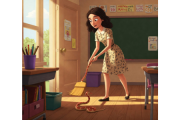The relevance of Ulysses’ words to my own situation has struck me even more forcibly ever since. I can look back now, in retirement, on a life made full not only by a growing appreciation of my own cultural heritage, by wide reading, imaginative and actual travel, and a close nuclear family, but also by marriage to Sheila, the mother of my two sons, herself of English and Irish ancestry, and also a teacher, whose premature death from cancer means there is now a sacred place in a local cemetery, near the four graves of our parents. I am now married to Louise, a Quebecoise from Gatineau with children of her own. Her ancestors, the De Repentigny family, came to Quebec in the 17th century from Normandy, from the sleepy hamlet of Repentigny we both explored together some years ago. She is not what independantistes consider pur laine, for in the almond shape of her eyes can be seen an ancestry that includes a First Nations bloodline. She too is a part of all that she has met. She has not only enriched my life and corrected my missteps, but she has, albeit unknowingly, helped me to see that, as Hamlet so astutely remarked, “There is a divinity that shapes our ends, rough-hew them how we may.” This was obviously meant to happen. The Austro-German poet Rainer Maria Rilke, born in Prague, declared that “love consists of this: two solitudes that meet, protect and greet each other.” Once there were two such separated solitudes in Canada, as the title of the novel by Hugh MacLennan demonstrates. But that book first appeared in 1945, some 50 years before the rejection of the 1995 referendum on separatism, an event now itself a generation behind us. Now these ‘solitudes’ need, and appear to know they need, each other. In my two marriages to descendants of the European founding peoples of Canada, on both sides of the river that has given its name to the capital city through which it flows, in what was once a rough lumbering town, I married Ottawa. I followed in Mr. McCarthy’s footsteps, and was enabled, like him, eventually to read Ulysses’ words aloud to a new generation of students. Now I am a grandfather to children whose ethnic origins are English, Ukrainian and Chinese, and step-grandfather to several whose ancestry includes Italian, French, Welsh, Irish, and English roots, all the product of immigration and inter-marriage. One of my nephews is married to a girl with roots in Bangalore in Kerala, and another to one from Romania, both of whom recently became mothers. We have been blessed by all of their individualities.
“I am a part of all that I have met.” This is true for all of us, wherever we have come from or been to, whomever we have loved or befriended, whatever we have done with our lives. In his great meditation on ageing and death, “Nothing To Be Frightened Of,” the writer Julian Barnes reminds us “Memory is identity…. You are what you have done; what you have done is in your memory; what you remember defines who you are; when you forget your life you cease to be, even before your death.”
The essential truth of Ulysses’ claim will not, of course, strike every reader as forcibly as it did me at the time, and continues to do so today, but so long as this poem, or any similar work of literary imagination can offer even one of its readers an intimation of an answer to an existential question, it will have performed a vital function, one that a society increasingly obsessed with mechanistic answers to essentially spiritual questions ignores at its peril. At the time that Ulysses delivers his exhortation to his crew, his journey is still not complete. Neither is yours, or mine. As the poet Robert Browning once affirmed so hopefully in a famous couplet, “Grow old along with me / The best is yet to be.”
Who am I? I am still finding out.
How about you?






Susan8 months ago
A beautiful piece, Peter, and so very true, too.
Thank you for writing it. I always knew intrinsically that I am part of all that I have ever been, seen, or done, but I don’t think I could have expressed it as well as have you.
Susan
Peter7 months ago
Thank you, Susan.
Peter